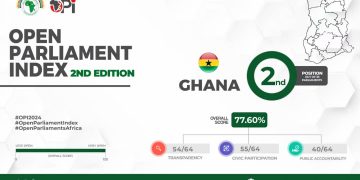Professor Quartey optimistic about Ghana securing bilateral agreement by end of February
Director of the Institute of Statistical, Social and Economic Research (ISSER), Professor Peter Quartey, has expressed optimism regarding Ghana’s prospective agreement with bilateral creditors by the end of next month – February 2024.
This development holds profound implications, especially in light of the International Monetary Fund’s (IMF) slated board meeting on January 11, 2024, earmarked for cash disbursement contingent upon Ghana’s successful negotiations with its bilateral creditors.
According to Professor Quartey, securing an agreement with bilateral creditors is pivotal for unlocking the second tranche of funds from the IMF.
Underscoring the broader ramifications of such a deal, he emphasized its potential to catalyze stability in the exchange rate landscape, thereby exerting a positive cascading effect on inflation dynamics and engendering vibrancy across various business sectors.
“For us to get the second tranche [funds], it is dependent on us getting into an agreement with external creditors. If that happens, then certainly we are likely to see some stability in the exchange rate market and that drives inflation and a lot of activities on the business front. So if the exchange rate is relatively stable, we are likely to see some gains,” he stated.
The overarching sentiment conveyed by Professor Quartey hinges on the pivotal role of exchange rate stability as a linchpin for moderating inflationary pressures. He contends that a stabilized exchange rate environment would likely engender either marginal price increases or maintain price levels, thereby tempering inflationary trajectories and fostering a conducive economic environment.
Background
Ghana is requesting a 20% – 40% haircut and a maximum 5% interest rate and maturity not exceeding 20 years on debts owed to China and other members of the OCC as well as its Eurobond holders.
A haircut, China is unwilling to take on its loans made to Ghana. Then there is the disagreement on the “cut-off dates” for the debts. The “cut-off date” – refers to the date after which new loans will not be restructured.
While Dec. 31, 2022 is close to when Ghana defaulted, March 24, 2020 was being considered as a cut-off date because that was when the G20 introduced its debt service suspension initiative (DSSI) to help the world’s poorest countries cope with the fallout of the COVID-19 crisis.
The official creditors hold about $5.4 billion of Ghana’s $20 billion external debt that is being restructured.








